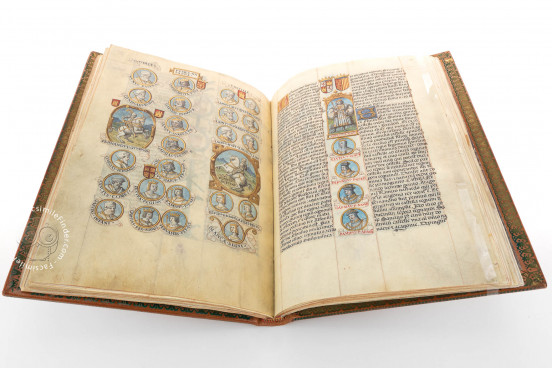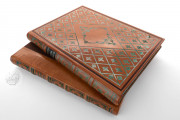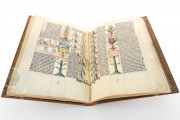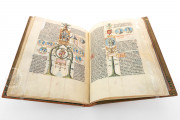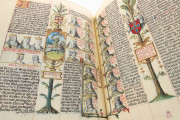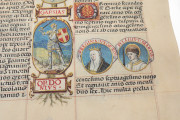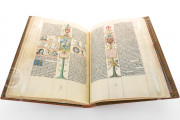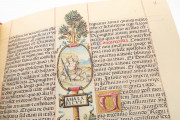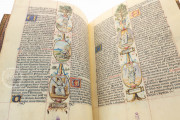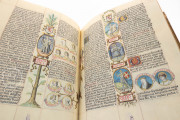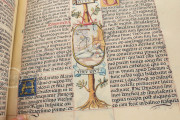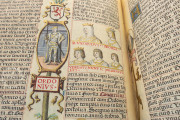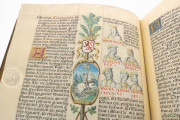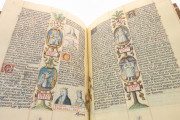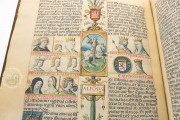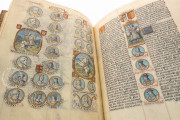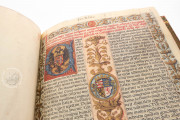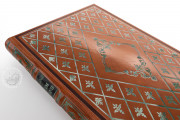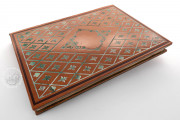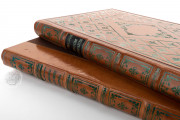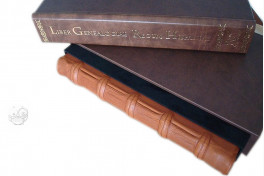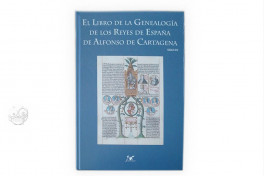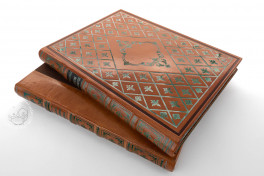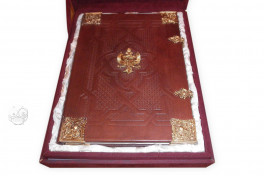The Genealogy of the Kings of Spain, probably made between 1526 and 1539, is a masterfully illuminated manuscript created for Isabel, consort of Charles V, Holy Roman Emperor. Its text is attributed to Alonso de Cartagena. The manuscript features intricate decorations, including rich borders, cartouches, and medallions interspersed with key biographical facts. The painted embellishments include portraits of prominent figures, coats of arms, and emblems, enriching the genealogical text and vividly illustrating the royal lineages of Spain. The embellishments are integrated into the manuscript, adding both aesthetic beauty and historical significance.
We have 2 facsimiles of the manuscript "Genealogy of the Kings of Spain":
- Libro de la Genealogia de los Reyes de Espana (Parchment Facsimile) facsimile edition published by Scriptorium, 2014
- Libro de la Genealogia de los Reyes de Espana facsimile edition published by Scriptorium, 1995

